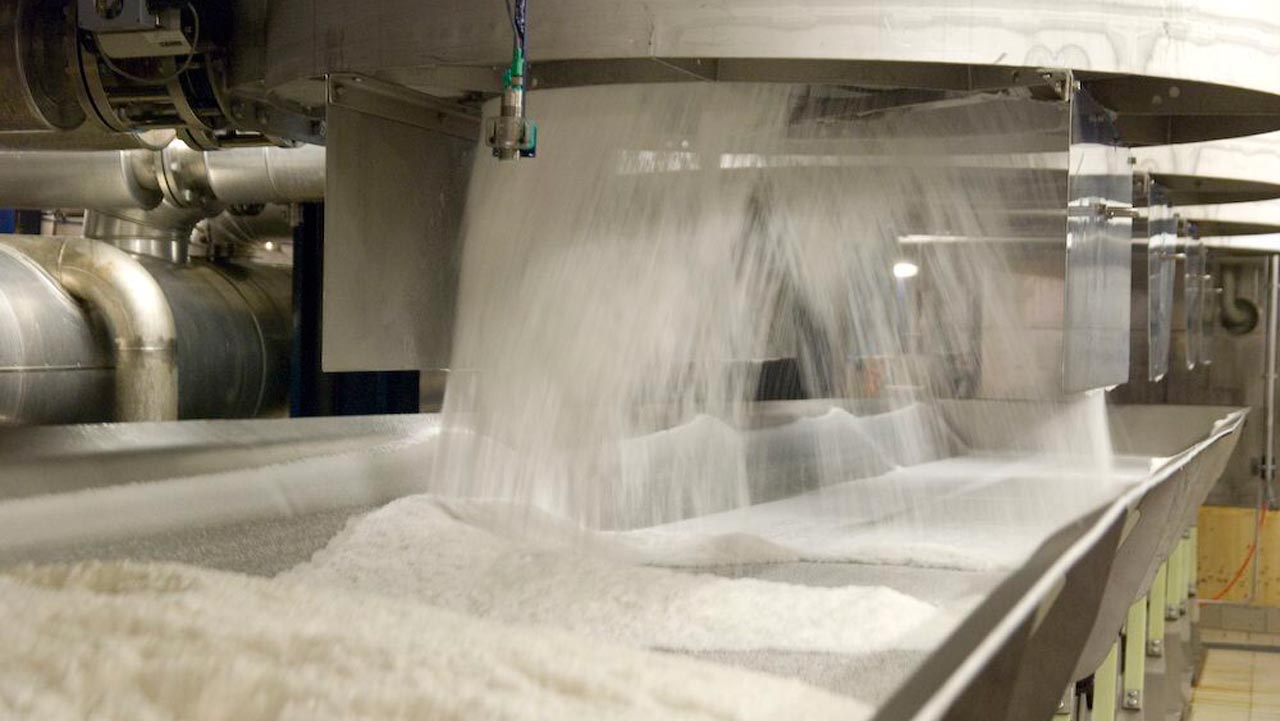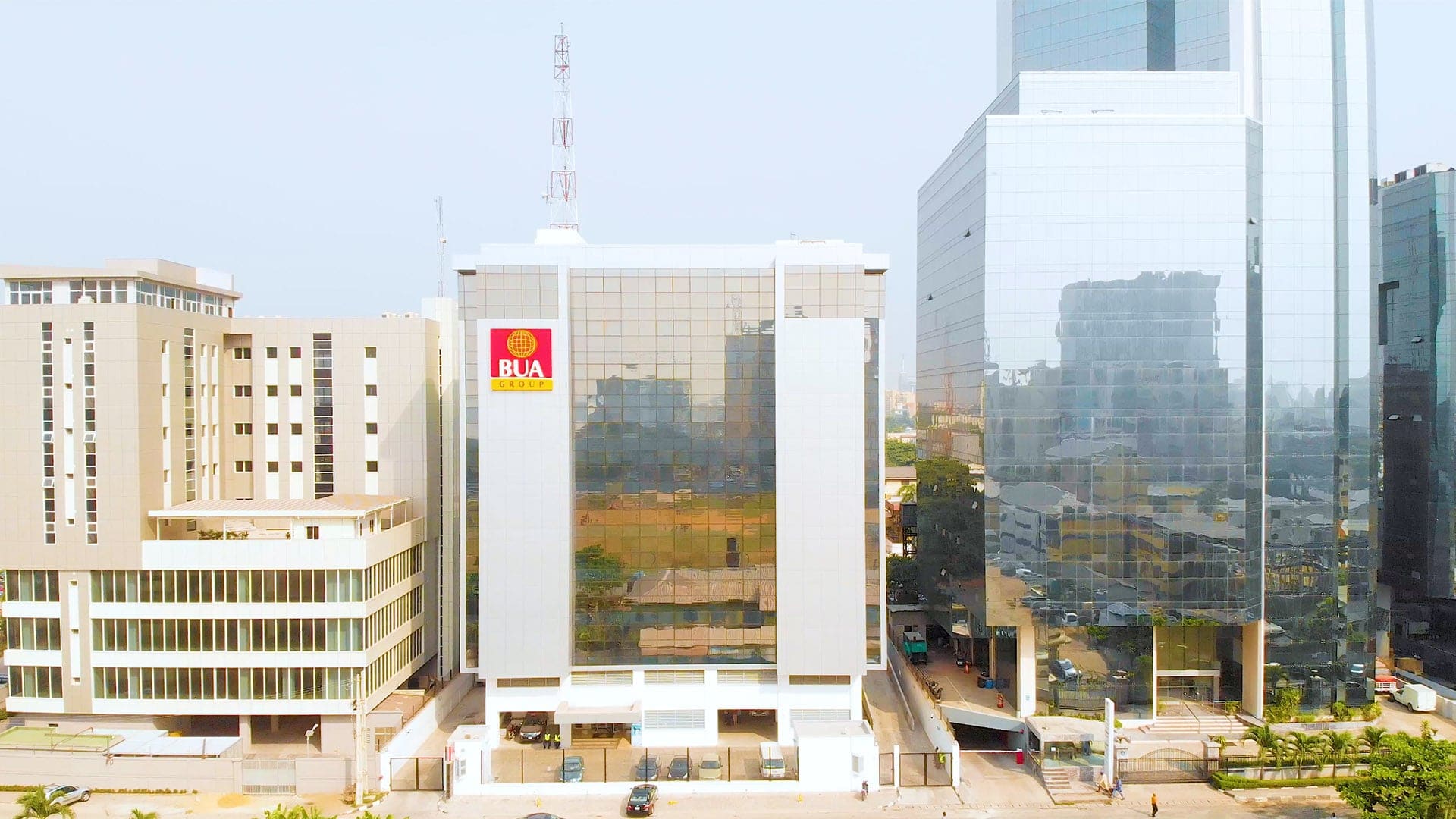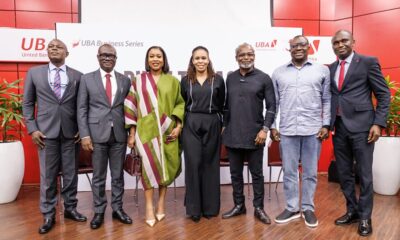- Buhari Inaugurates 100,000-tonne Flour Mills’ Sugar Plant
President Muhammadu Buhari on Thursday inaugurated a 100,000-tonne capacity sugar plant belonging to the Flour Mills Nigeria Plc.
The plant located at Sunti, Niger State and built at a cost of over N50bn, occupies 17,000 hectares of land out of which 10,000 hectares are devoted to sugarcane.
The event was witnessed by the Minister of Industry, Trade and Investment, Dr. Okechukwu Enelamah, the Governor of Niger State, Sanni Bello; his Kebbi State counterpart, Atiku Bagudu; the Governor of Central Bank of Nigeria, Mr. Godwin Emefiele; the Etsu Nupe, Alhaji Yahaya Abubakar; a former Minister of Information, Prof. Jerry Gana, among other dignitaries.
Speaking at the inauguration, Buhari said that the project was timely and coincided with the exit of Nigeria from recession and gradual growth of the economy.
He said sugar was critical to national security, adding that the investment would save the country a lot of revenue in foreign exchange and enhance rural industrialisation as well as create wealth among the rural poor.
He said, “One of the cardinal objectives of this administration is to look inwards as we focus on our natural endowments in agriculture and other non-oil sector for inclusive growth and development.
“The level of work and magnitude of investment we are witnessing here today is a clear indication that our policies on economic diversification are on the right path and attracting the right kind of attention.”
He said that since 1960, the FMN had shown commitment to Nigeria, adding that this was central to his administration’s determination for an inclusive economy.
He said that the investment would be significant to the development of the nation’s economy especially with its location along the River Niger because most of the people along that belt derived their livelihood from the river.
“This is the time to convert the area into a commerce and industry hub and I urge other business owners to follow the example of the Flour Mills and invest in the area.”
Buhari also called on the private sector to rehabilitate the Mokwa-Jebba road as part of their corporate social responsibility initiative.
The Chairman, FMN Plc, John Coumantaros, said that the establishment of plant was an indication of the firm’s belief and support for the Federal Government’s sugar master plan.
He added that it was the single largest most substantial investment the company had made in Nigeria and would save Nigeria $100m in foreign exchange annually.
He said it also would impact on the lives of 50,000 people in Niger State.
He said, “Sunti Golden Sugar Estates is for our company, more than a dream come true; it is the realisation of a strategic investment designed to produce made-in-Nigeria sugar. It is in line with our mantra, which is feeding people everyday. In Flour Mills Plc, we believe that reliance on imported raw materials for factory processes should be behind us.”
Coumantros commended the CBN for supporting the project, noting that without the apex bank, the sugar plant would not have happened.
Also speaking, the Niger State Governor, Bello, said that the plant was the biggest of its kind and one of only two plants capable of producing refined sugar from sugar cane.
He said that it would produce 450,000 metric tonnes of sugar daily.
He said, the visit of Buhari, being his first major official visit to the state after his election, was an indication of his love for Niger people and his commitment to the transformation of agriculture.
He said, “It is our belief that to achieve a hunger fire Nigeria, agriculture must play a prominent role by generating income, employment and feeding people.”
Bello disclosed that the Niger people were proud farmers of millet, sorghum, sugar cane and shea butter for local consumption and export.
He said, “Agriculture has been our top priority and has received support from the government. We have acquired 200,000 hectares of land to train youths and built 15 rehabilitation centres for irrigation scheme, while 2,000 farmers have been registered in the soya bean, cotton and rice sector and 2018 was declared the year of industrial revolution in the state.

 Forex4 weeks ago
Forex4 weeks ago
 Naira4 weeks ago
Naira4 weeks ago
 Economy4 weeks ago
Economy4 weeks ago
 Cryptocurrency4 weeks ago
Cryptocurrency4 weeks ago
 Social Media4 weeks ago
Social Media4 weeks ago
 Business4 weeks ago
Business4 weeks ago
 Economy3 weeks ago
Economy3 weeks ago
 Company News3 weeks ago
Company News3 weeks ago





























